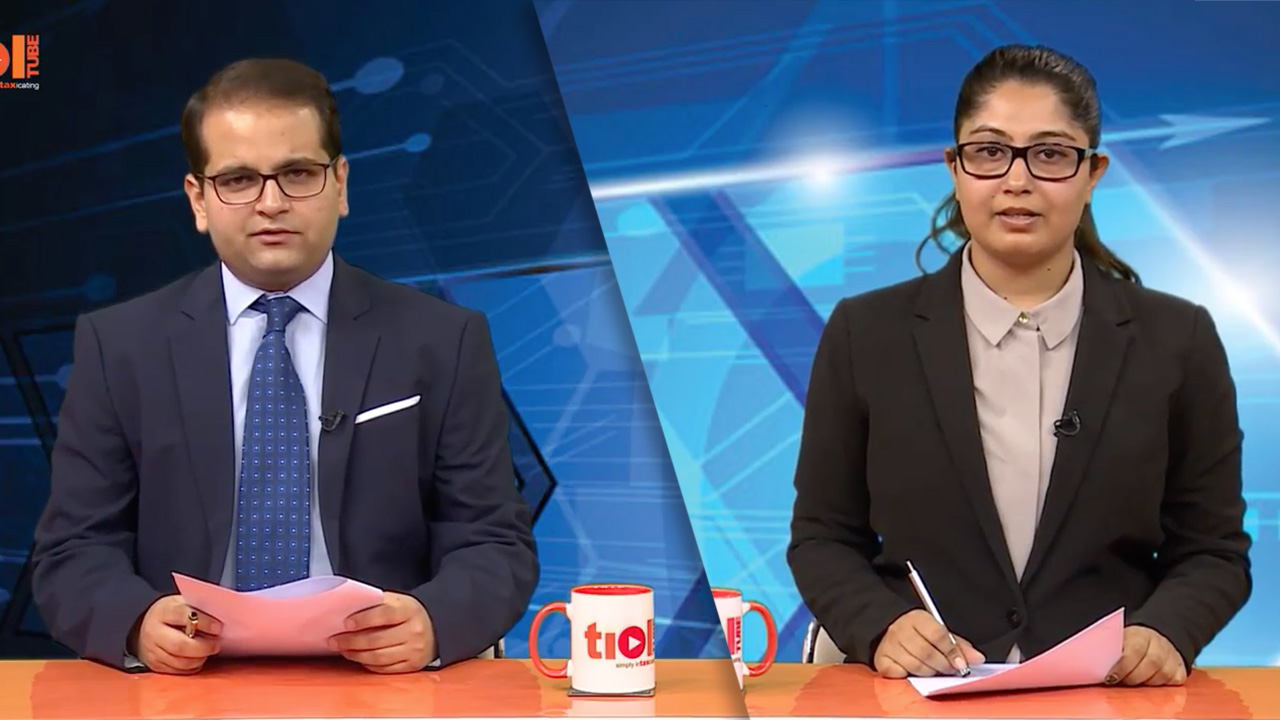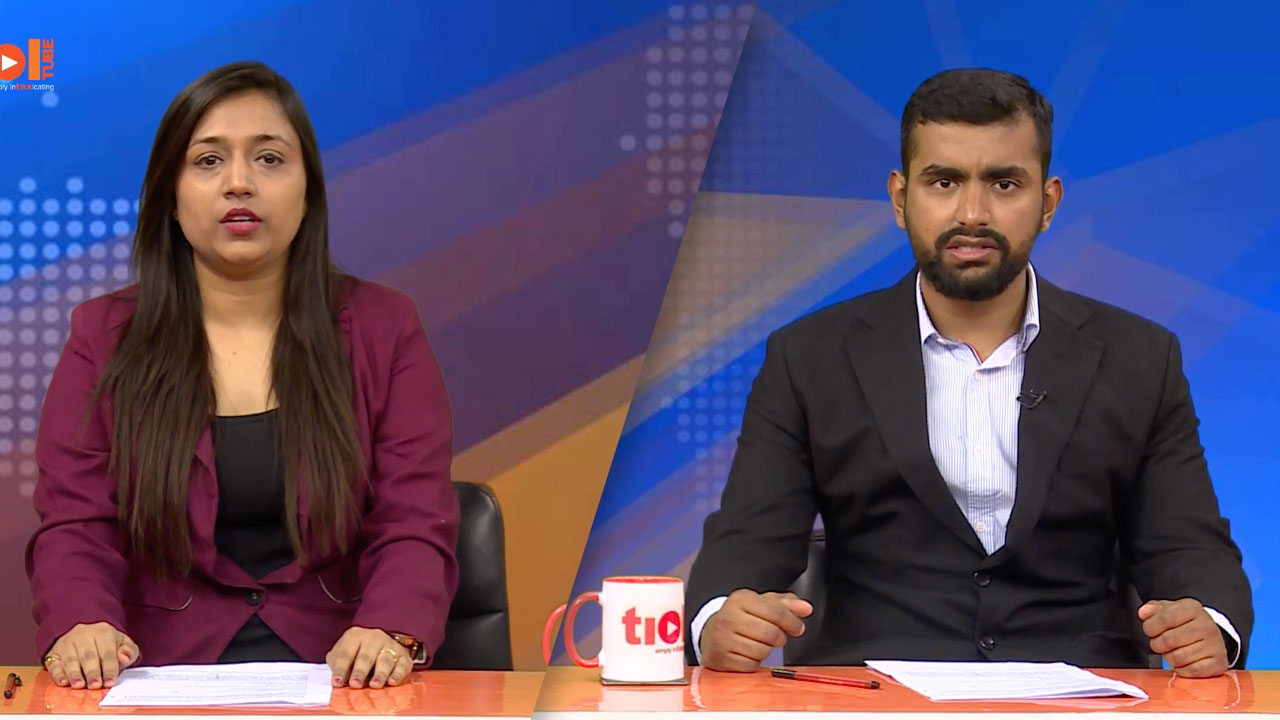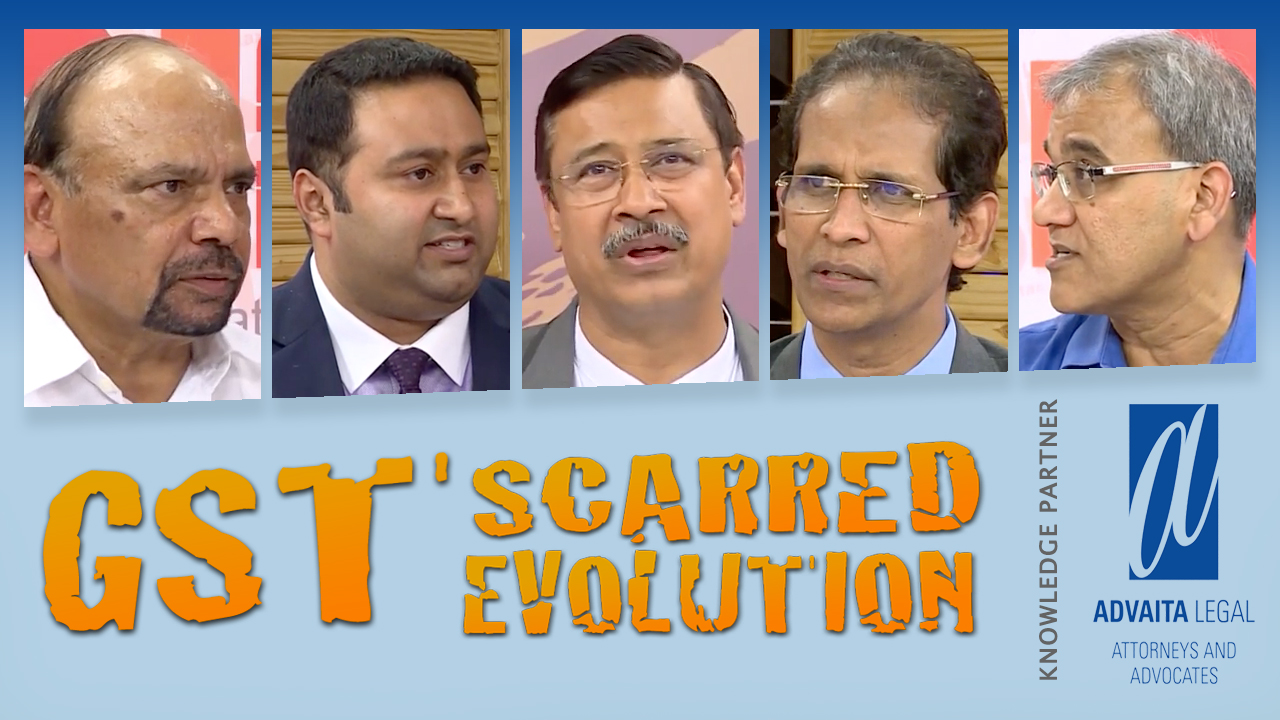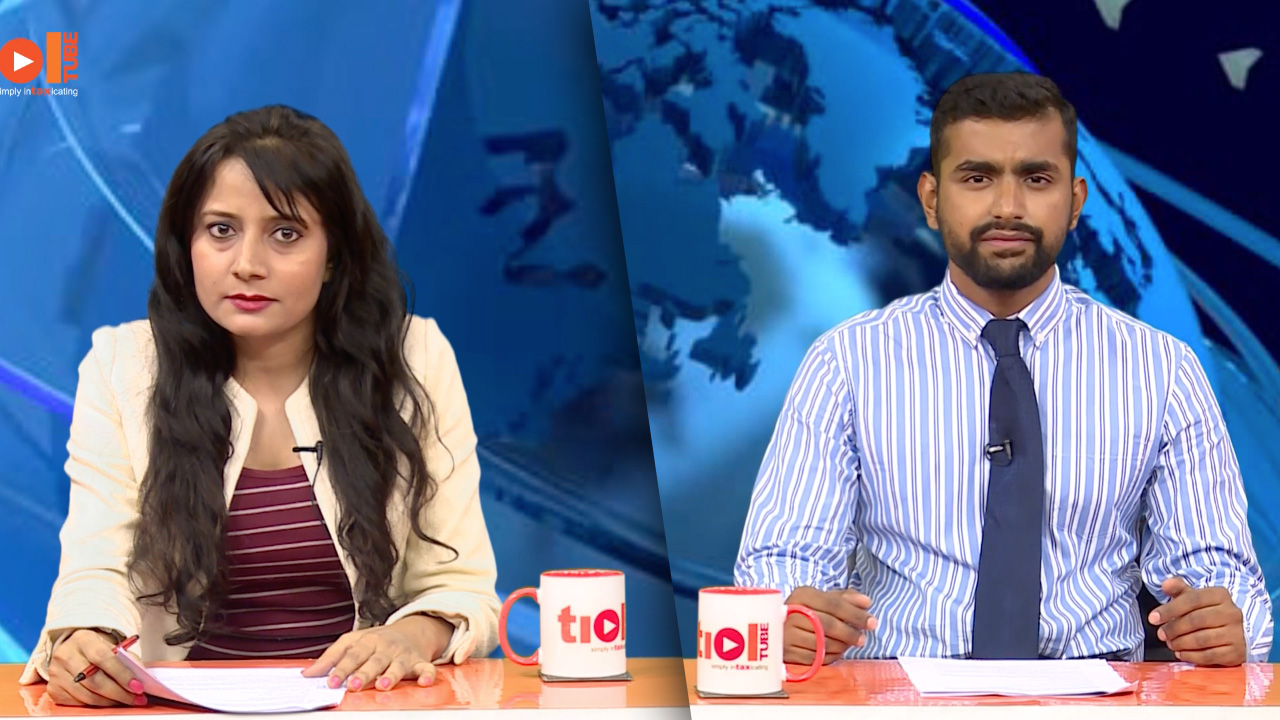SERVICE TAX
2018-TIOL-2380-HC-KAR-ST
Karnataka Power Transmission Corporation Ltd Vs PR CCE
ST - Petitioner challenges the SCN dated 20.06.2016 issued by Commissioner - Petitioner contends that the said show cause notice issued by the Commissioner of Central Excise & Service Tax, LTU (Audit), New Delhi, lacks territorial jurisdiction and therefore, the same deserves to be quashed - Petitioner also challenges the validity of the provisions of S.66(E)(e) of the Finance Act, 1994.
Held:
+ There is no patent lack of jurisdiction with the Commissioner of Audit wing of the Department to call upon the petitioner - KPTCL to show cause before the Adjudicating Authority concerned having territorial jurisdiction over the petitioner-KPTCL at Bangalore - If such a contention were to be accepted, the very purpose and meaning of audit objections working at the Central level would be rendered meaningless: High Court [para 7]
+ A deeming definition of “Declared Services” to be taxable service in S.66(E) of the Finance Act, 1994 is fully within the legislative competence of Union of India and it does not detain this Court on a frivolous contention like this - There is nothing unconstitutional and ultra vires in the said definition - Court is surprised at the frivolous kind of plea raised by the Government Undertaking Corporation just to invoke the extraordinary jurisdiction of this Court against the Union of India challenging the vires of certain definition clause in the Tax levy enactment, which has stood for so long - Whether the services rendered by the petitioner-assessee are really taxable or not can be a matter of debate and legal contentions, but not the definition clause itself defining the objects and subjects of taxation itself, for which the Legislature has a wide legislative latitude as per settled legal position - The said contention is not only bereft of any merit but has been prematurely and unnecessarily raised in the present case: High Court [para 8, 9]
+ Tax enactment in question provides for a hierarchy of remedial measures and forums - All such contentions, therefore, should pass through that hierarchy of appeal forums - Prematurely raising such contentions under the garb of constitutional validity or so called substantial question of law is nothing but a futile attempt on the part of the assessee, unnecessarily encroaching upon the precious public time of the Constitutional Courts without allowing the competent adjudicating authorities or appellate authorities to apply their mind to the contentions raised by the assessee and then pass appropriate orders in the matter - Such an exercise of putting the cart before the horse is not at all called for - Government Undertaking was clearly ill-advised to invoke the writ jurisdiction of High Court at the premature stage of show cause notice issued by the Service Tax Department - such premature writ petition deserves to be dismissed with costs for unnecessarily wasting the time of the Court - Costs imposed of Rs.50,000/- to be deposited with the Registrar General of the Court within a period of two months, which upon deposit, is to be remitted to the “Prime Minister’s Relief Fund” - Petition dismissed: High Court [para 10, 11]
- Petition dismissed: KARNATAKA HIGH COURT
2018-TIOL-3397-CESTAT-HYD
CCE, C & ST Vs Bridge And Roof Company India Ltd
ST - Assessee had availed benefit of Notfn 01/2006-ST on execution of contracts and discharged service tax liability on an amount calculated at the rate of 33% of gross amount charged and received by them - It is the case of Revenue in SCN that assessee having availed CENVAT credit paid on input services, is not liable for benefit of exemption Notfn 1/06-ST - The adjudicating authority after following due process of law and appreciating the factual matrix as presented by assessee, dropped the proceedings initiated by SCN - The Revenue has not effectively contradicted the factual findings of adjudicating authority who had appreciated the entire case records and held that the proceedings initiated by SCN needs to be dropped - Tribunal concur with such factual findings of the adjudicating authority - In view of foregoing and the fact that the Revenue has not contradicted the factual findings, impugned order is correct and legal and does not suffer from any infirmity: CESTAT
- Appeal rejected: HYDERABAD CESTAT
2018-TIOL-3396-CESTAT-HYD
HBL Power Systems Ltd Vs CCCE & ST
ST - The assessee, an SEZ unit, received various services during the period of dispute - It filed claims under Notfn No 09/2009-ST & Notfn No 17/2011-ST, both of which stipulate filing of refund claims within one year from end of the quarters - The Department opined that the assessee filed such claims belatedly and rejected them.
Held - The Notfn No 17/2011-ST permits extension of time for filing refund claims or for condoning delay in filing - It is seen that the assessee sought for condonation of delay but the adjudicating authority refused to do so despite being empowered to condone the delay - On merits, the assessee is found to be eligible for refund - The adjudicating authority ought to have condoned the delay & processed the claim by examining the broader prospective - Hence the delay is condoned & the refunds are granted on merits: CESTAT (Para 4,8,9)
- Assessee's appeals allowed: HYDERABAD CESTAT
2018-TIOL-3395-CESTAT-MAD
Freight Systems India Pvt Ltd Vs Commissioner of GST & CE
ST - The assessee company is registered for providing BAS, BSS, Cargo Handling Service, Storage Warehousing Service & Transport of Goods by Road service - Upon audit, the Department noted that the assessee collected documentation charges, examination charges, processing fees, stuffing charges & freight charges for transporting cargo - The assessee also undertook export of goods - During import of cargo, the assessee filed bills of entry, processed them & attended to clearance of consignment - It collected freight costs - The Department opined that such costs were charges for transporting cargo as per the customer's directions - The Department opined that such freight charges were taxable under BAS and raised duty demand with interest & penalties for one period - The Department also held that services rendered to SEZ unit were not liable for exemption under Notfn No 04/2004 since they had been performed outside the SEZ.
Held - The SCN also proposes to raise duty demand under BSS for a particular period - However, the adjudicating authority raised demand under BAS & so travelled beyond scope of the SCN - Hence the demand is unsustainable - Moreover, the denial of exemption under Notification No. 4/2004 is unjustified, considering the Tribunal's findings in Vision Pro Event Management - The Department's cross objections seeking classification of demand under BSS are set aside for want of material to substantiate such claim: CESTAT (Para 1,9,10,12,13)
- Assessee's appeals allowed: CHENNAI CESTAT
CENTRAL EXCISE
2018-TIOL-2379-HC-MAD-CX + Case Story
Jeevan Diesels And Electricals Ltd Vs CCE
CX - Reasoning given by the Tribunal for vacating the penalty imposed u/s 11AC of the CEA, 1944 will equally enure in favour of the assessee in respect of penalty u/r 25 of the CER, 2002 - assessee is in deep financial distress and they are before BIFR, hence no penalty is imposable in view of the decisions in Ramanasekar Steels Ltd. - 2013-TIOL-662-HC-MAD-ST & Andhra Cements Limited - 2007-TIOL-803-HC-AP-CX - Tribunal has also not recorded any finding as to which of the clauses under Rule 25 of the Rules were attracted, therefore, penalty is not imposable in view of the decision in Amrit Foods - 2005-TIOL-164-SC-CX - Order of the Tribunal imposing penalty of Rs.5 lakhs u/r 25 of CER, 2002 set aside - Civil Micelllaneous Appeal filed by the assessee is allowed: High Court [para 7 to 9, 12 to 15]
- Appeal allowed: MADRAS HIGH COURT
2018-TIOL-3394-CESTAT-MUM
Nityanand Engineering Pvt Ltd Vs CCE
CX - CE duty demand, by invoking extended period of limitation, was confirmed against the appellant on the ground that various activities like drilling, cutting, bending, welding etc. undertaken for manufacture of various parts of towers has resulted in the emergence of excisable goods and the activity has to be held as manufacturing activity- appeal to CESTAT.
Held: It is not disputed that the matter was not free from doubt inasmuch as the earlier decisions were in favour of the assessee and the matter came to be referred to the Larger Bench in the case of Mahindra & Mahindra and Ors [ 2005-TIOL-1215-CESTAT-DEL-LB - Supreme Court has in the case of Continental Foundation [ 2007-TIOL-152-SC-CX ] and in the case of Kiran Ispat Udyog [Civil Appeal 3043 to 3056 of 2004 & 2642 of 2005 decided on 01.04.2015] held that where the correctness of the earlier decisions of the Tribunal are doubted and the matter stands referred to the Larger Bench, there could be scope for entertaining doubt and extended period of limitation would not be available to the Revenue; as the issue was entangled in judicial battle and hazy picture was clarified only subsequently, the extended period cannot be held to be invokable - in the present case, admittedly, the extended period stands invoked by the Revenue and admittedly, the issue was not free from doubt having been referred to the Larger Bench - Bench, therefore, holds the demand to be barred by limitation - impugned order confirming demand and imposing penalty on both appellants are set aside and appeals are allowed with consequential relief: CESTAT [para 5, 6]
- Appeals allowed: MUMBAI CESTAT
2018-TIOL-3393-CESTAT-MUM
Pannageshwar Sugar Mills Ltd Vs CCE & ST
CX - Appellant engaged in manufacture of sugar and molasses and is availing CENVAT facility - during manufacture, ‘bagasse' emerges as a waste/by-product and which was being cleared at Nil rate of duty - According to the department, since no separate records of CENVAT credit were maintained for dutiable and exempted goods or in the alternative appellant had not reversed CENVAT credit on sale value of the exempted ‘bagasse' as per rule 6(3)(i) of CCR, therefore, SCN issued demanding amount of 6% on the sale value of bagasse - demand confirmed and penalty/interest imposed - appeal to CESTAT.
Held: Supreme Court in the case of DSCL Sugar Ltd. 2015-TIOL-240-SC-CX has clearly laid down that bagasse is agricultural waste of sugarcane and such goods cannot be said to be the result of any process inasmuch as there is no manufacturing process involed in Bagasse's production - Bagasse is not ‘goods' but merely a waste or by-product and, therefore, rule 6 of the CCR is not applicable - Bagasse is bound to come into existence during the crushing of the sugarcane and is an unavoidable agricultural waste - Board Circular 1027/15/2016-CX dated 25.04.2016 cannot override the Rules as well as the law laid down by the apex court and the orders of the Tribunal and moreover the said Circular was issued at a later date whereas the period of dispute is March 2015 to July 2015- Appeal is allowed: CESTAT [para 7, 10]
- Appeal alowed: MUMBAI CESTAT
2018-TIOL-3392-CESTAT-MUM
Shri Vitthalsai SSK Ltd Vs Commissioner of GST & CE
CX - Appellant engaged in manufacture of sugar and molasses and is availing CENVAT facility - during manufacture, ‘bagasse' emerges as a waste/by-product and which was being cleared at Nil rate of duty - According to the department, since no separate records of CENVAT credit were maintained for dutiable and exempted goods or in the alternative appellant had not reversed CENVAT credit on sale value of the exempted ‘bagasse' as per rule 6(3)(i) of CCR, therefore, SCN issued demanding amount of 6% on the sale value of bagasse - demand confirmed and penalty/interest imposed - appeal to CESTAT.
Held: Supreme Court in the case of DSCL Sugar Ltd. - 2015-TIOL-240-SC-CX has clearly laid down that bagasse is agricultural waste of sugarcane and such goods cannot be said to be the result of any process inasmuch as there is no manufacturing process involed in Bagasse's production - Bagasse is not ‘goods' but merely a waste or by-product and, therefore, rule 6 of the CCR is not applicable - Bagasse is bound to come into existence during the crushing of the sugarcane and is an unavoidable agricultural waste - Board Circular 1027/15/2016-CX dated 25.04.2016 cannot override the Rules as well as the law laid down by the apex court and the orders of the Tribunal and moreover the said Circular was issued at a later date whereas the period of dispute is March 2015 to July 2015 - Appeal is allowed: CESTAT [para 7, 10]
- Appeal allowed: MUMBAI CESTAT
CUSTOMS
2018-TIOL-3391-CESTAT-AHM
E I Dupont India Pvt Ltd Vs CC
Cus - The assessee company imported 'Rynaxypyr Tech' which mainly consists of a compound named Chlorantraniliprole - The same was classified under CTH 29333990 by the assessee - However, the Department opined that the item in question was classifiable under CTH 380891 - Hence demand for differential duty was raised.
Held - The issue at hand is whether Rynaxypyr is classifiable under Chapter 29 as separately defined chemicals or under Chapter 38 as pesticides - Considered the provisions of Chapter 29 & 38 of Customs Tariff Act and Chapter 29 & 38 of the HSN Code - Considering the decision of the Apex Court in Union of India Vs. Pesticides Mfg & Formulators Association of India wherein the described the meaning of the term 'compound' as being a mixture, the classification favored by the Department will prevail: CESTAT (Para 1,10-13)
- Assessee's appeal dismissed: AHMEDABAD CESTAT
2018-TIOL-3390-CESTAT-BANG
Indian Oil Corporation Ltd Vs CC
Cus - The assessee company is engaged in refining petroleum products and selling them to oil marketing companies - It is permitted to receive & store duty paid petroleum products for subsequent release, upon payment of Customs duty on transaction value - The assessee also receives non duty paid Excise stocks which is stored in the same tank as duty paid Customs stock - Upon sale or upon clearance to its own depots, the price of the products including Excise duty element is fixed as per Administered Price Mechanism - During the period of dispute, the Department alleged that the assessee collected excess amount of Excise duty which was deposited in Oil Pool Account - The Department opined that the same was to be deposited in the CWF under head of Customs - Duty demand was raised u/s 28B.
Held - An identical issue was resolved in an earlier matter involving the same assessee, wherein the Tribunal found merit in the assessee's contention that as per the Administered Price Mechanism, any excess recovery must be deposited in the oil pool account & any deficiency is covered by this account & so there is no excess collection of duty - It was also noted that petroleum product prices were fixed by the Government and the assessees had to adhere to them - Hence the adjustment of duty through the Oil Pool account had been provided for - Following such findings, the demands raised are set aside: CESTAT (Para 3,4,6,8)
- Assessee's appeal allowed: BANGALORE CESTAT |









